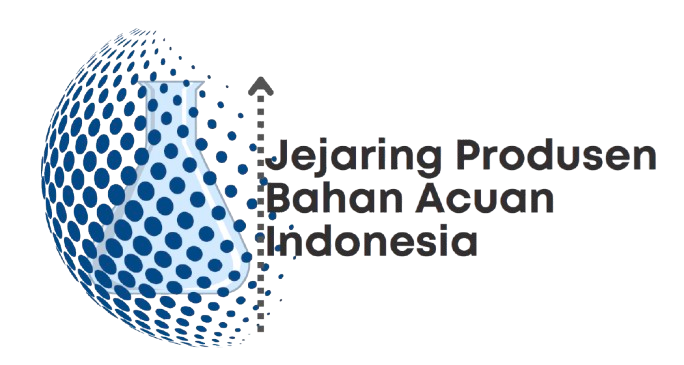Let’s face it, the food and beverage industry is one of the most competitive and regulated sectors in the world. If you’re in this game, whether you’re running a small artisanal bakery or managing a large-scale beverage manufacturing plant, you’re constantly juggling a hundred things at once: meeting customer demands, ensuring quality, maintaining safety standards, managing supply chains, and keeping your team motivated. Add to that the increasing pressure to meet global standards and stay ahead of the curve, and it’s no surprise that certification like ISO 9001 can seem like a game-changer.
So, why should your food and beverage business consider getting ISO 9001 certified? Let’s break it down.
What is ISO 9001 and Why Does it Matter for Food & Beverage?
If you haven’t heard of it already, ISO 9001 is the internationally recognized standard for Quality Management Systems (QMS). Developed by the International Organization for Standardization (ISO), it outlines criteria for an organization’s ability to consistently provide products that meet customer and regulatory requirements.
Now, you might be wondering, “Okay, but what does this have to do with the food and beverage industry?” Great question. The answer is simple: quality matters more than ever.
Consumers today are more discerning, and governments are more stringent. Whether it’s about food safety, sustainability, or ethical sourcing, the stakes are high. In such an environment, ISO 9001 serves as a guiding framework that ensures you’re delivering consistent, high-quality products, while also reducing risk and inefficiencies.
Key Benefits of ISO 9001 Certification for Food & Beverage Businesses
ISO 9001 isn’t just some “check-the-box” certification. It’s an ongoing commitment to improve your processes, operations, and most importantly, customer satisfaction. Here’s how it benefits your business:
1. Consistency and Quality Control
In food production, consistency is key. Whether you’re producing a can of soda or a bag of chips, the quality should be the same every time. ISO 9001 helps create structured processes for monitoring and controlling quality at every stage of production, which minimizes defects and reduces waste.
2. Increased Customer Satisfaction
Ever bought a product and thought, “This doesn’t taste like the last batch”? It’s frustrating, right? ISO 9001 ensures you meet customer expectations consistently, creating a solid reputation. Happy customers mean repeat business, and who doesn’t want that?
3. Streamlined Operations and Efficiency
Having well-defined processes makes your operations run smoother. It reduces bottlenecks, improves productivity, and lowers costs—because when things are done right the first time, there’s less need for rework. It’s about creating a well-oiled machine that works effectively and efficiently.
4. Regulatory Compliance
Navigating the complex maze of food safety and quality regulations is a challenge. ISO 9001 helps ensure your business meets industry standards and legal requirements. It also shows regulatory bodies that you’re committed to maintaining the highest standards, which can streamline inspections and audits.
5. Improved Risk Management
Whether it’s a supply chain hiccup or a food safety issue, risks are part of the game in food production. ISO 9001 encourages proactive risk identification and management, so you’re not caught off guard by potential problems.
Breaking Down the ISO 9001 Requirements for Food & Beverage Companies
ISO 9001 can seem daunting at first. The standard outlines several criteria that businesses need to meet, but don’t worry, we’re going to break it down for you in bite-sized pieces.
1. Customer Focus
This one’s a no-brainer, right? The main goal of any food and beverage company is to meet customer needs—whether it’s providing a fresh, healthy snack or ensuring your beverages meet the highest safety standards. ISO 9001 stresses that every part of your process should be focused on increasing customer satisfaction.
2. Leadership
Effective leadership is the backbone of any successful company. ISO 9001 requires top management to take responsibility for creating a culture of quality, ensuring that policies and processes are aligned with the company’s goals and customer expectations.
3. Engagement of People
Your team is your most valuable asset. To meet ISO 9001 standards, you need to foster an environment where employees at all levels are involved, engaged, and empowered to contribute to the organization’s goals.
4. Process Approach
ISO 9001 emphasizes managing and improving processes for better efficiency and consistent results. In food and beverage production, this means having clear processes for everything from sourcing ingredients to the final packaging.
5. Improvement
Continuous improvement is the essence of ISO 9001. It’s not a one-time thing but an ongoing commitment to better your processes, reduce waste, and increase product quality. This could mean implementing new technology, revising safety protocols, or simply listening to customer feedback more closely.
6. Evidence-Based Decision Making
Making decisions based on data, rather than assumptions, is another crucial part of ISO 9001. By collecting and analysing data about your production processes, customer feedback, and product quality, you can make more informed decisions that benefit your business in the long run.
7. Relationship Management
In the food and beverage industry, you’re working with suppliers, distributors, and customers. ISO 9001 encourages building strong, long-term relationships with these stakeholders. By managing these relationships effectively, you can ensure the quality of your product remains high and your supply chain stays robust.
The Certification Process: What’s Involved?
Okay, so now that we know why ISO 9001 is valuable and what it requires, let’s talk about the certification process. It’s not an overnight thing, but don’t let that intimidate you—breaking it down makes it a lot less overwhelming.
1: Understand the Requirements
The first step is familiarizing yourself with the ISO 9001 standard. Fortunately, there are plenty of resources available (including guides and workshops) to help you understand the specifics. If you’re part of a food or beverage business, the standard is likely already aligned with many of your current practices.
2: Gap Analysis
Before you go for certification, you need to assess where your current processes stand compared to the ISO 9001 requirements. A gap analysis helps you identify areas of improvement and map out the steps you need to take to get ready for certification.
3: Implementation
This is where the hard work begins. You’ll need to align your practices and processes with ISO 9001. This might include revising documentation, setting up quality control systems, or training employees. It’s also the time to tweak operations to meet the standard’s requirements.
4: Internal Audit
Before the official audit, conduct an internal audit. This helps you spot any lingering issues and make sure everything is up to snuff. It’s like doing a dry run before the big exam.
5: Certification Audit
Now comes the moment of truth: the official certification audit. An external auditor will assess your processes to see if they meet ISO 9001 requirements. Don’t stress—by this point, you’ll have everything in place, and the auditor will work with you to ensure compliance.
6: Certification and Continuous Improvement
Once you pass the audit, congratulations—you’re officially ISO 9001 certified! But the work doesn’t stop there. Certification is valid for three years, and during that time, you’ll need to keep improving and maintaining your processes. You’ll also need to undergo surveillance audits to ensure you’re still compliant.
Overcoming Common Challenges in ISO 9001 Certification
Look, I’m not going to sugarcoat it—ISO 9001 certification can be tough. But the rewards are definitely worth it. Let’s talk about some common roadblocks and how to handle them.
Cost
Getting ISO 9001 certified comes with a price tag—there’s no way around it. Between consultant fees, employee training, and the time spent implementing changes, it can get expensive. But here’s the thing: the long-term savings from improved efficiency, reduced waste, and happier customers more than make up for the initial investment.
Resistance to Change
Change can be hard. Employees might be sceptical about new processes or worried about their roles changing. Communication is key here—help them understand the benefits and how the certification will make their jobs easier, not harder.
Time and Resources
ISO 9001 certification takes time—there’s no getting around it. For a food and beverage company, it may feel like a huge undertaking, especially if your team is already stretched thin. But breaking the process down into manageable steps will help you stay on track.
Conclusion: Is ISO 9001 Right for Your Business?
So, is ISO 9001 certification the right move for your food and beverage business? Honestly, if you’re looking to boost quality, streamline operations, improve customer satisfaction, and open doors to new opportunities, the answer is a resounding yes.
Sure, it requires investment—both in terms of time and money—but the long-term benefits make it an investment worth considering. By adopting ISO 9001, you’re not just ticking off a box for certification; you’re setting your business up for a future of growth, quality, and customer trust.

